Use of University Grounds by Vehicular Traffic, Student Accommodation and Paper Recycling | IELTS General Reading Practice Test 15 with Answers
Table of Contents
Limited-Time Offer : Access a FREE 10-Day IELTS Study Plan!
The IELTS General Training Reading will give you 60 minutes to complete 3 sections where the question subject will be everyday/ general topics.
Section 1- Use of University Grounds by Vehicular Traffic
Read the passage below and answer the following questions
The University grounds are private.
The University authorities only allow authorised members of the University, visitors and drivers of vehicles servicing the University to enter the grounds.
Members of staff who have paid the requisite fee and display the appropriate permit may bring a vehicle into the grounds. A University permit does not entitle them to park in Hall car parks, however, unless authorised by the Warden of the Hall concerned.
Students may not bring vehicles into the grounds during the working day unless they have been given special permission by the Security Officer and have paid for and are displaying an appropriate entry permit. Students living in Halls of Residence must obtain permission from the Warden to keep a motor vehicle at their residence.
Students are reminded that if they park a motor vehicle on University premises without a valid permit, they will be fined £20.
Questions 1-5
Look at the information on the following reading passage about the use of vehicles in the University grounds.
True – if the information is true
False – if the information is false
Not Given – if the information is not given
Example: The campus roads are not open to general members of the public. True
1 University employees do not need to pay for their parking permits.
2 Parking in Halls of Residence is handled by the Wardens of the Halls.
3 Having a University permit does not allow staff to park at Halls.
4 Parking permits cost £20 a year.
5 Students living in Hall do not need permission to park in Hall car parks.
Patient Information Leaflet
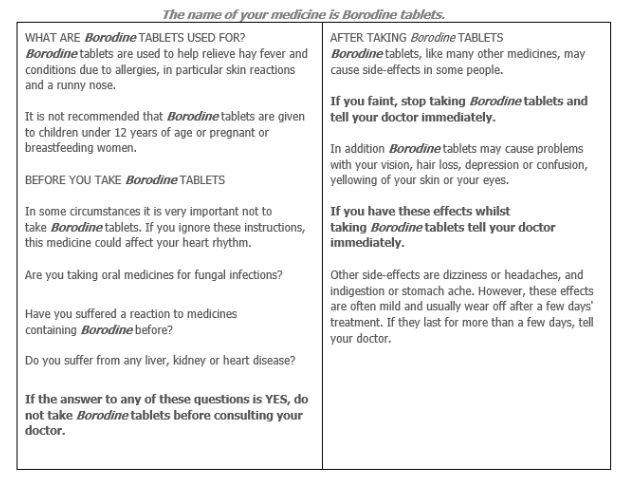
Questions 6-13
Read the patient information leaflet and match each of the following sentences with Two possible endings A-M
Example: Borodine tablet should not be given to ___ A&M
Questions 6 and 7
Borodine tablets might be used to treat ___
Questions 8 and 9
You must ask your doctor before taking Borodine tablets if you are already being treated for ___
Questions 10 and 11
You do not need to consult your doctor immediately if Borodine tablets give you ___
Questions 12 and 13
You must consult your doctor at once if you find Borodine tablets cause ___
Possible Endings
A children under 12 years of age.
B a headache.
C an uncomfortable feeling in your stomach.
D symptoms similar to a cold.
E a change in your skin colour.
F anything treated by prescription medicine.
G a kidney complaint.
H whitening of the eyes.
I sore or broken skin.
J a fungal infection.
K a feeling of sadness.
L shortness of breath.
M a woman expecting a child.
Also check :
- IELTS Reading
- IELTS Reading Practice Test
- Tips to Improve IELTS Reading Skills
- IELTS Reading Practice Test
- True False Not Given IELTS Reading
- IELTS Reading recent actual test
- IELTS Academic Reading test papers with answers pdf
- IELTS General reading practice test
- IELTS General Training
Section 2
Questions 13-18
Look at the welcome letter to students.
The text has 7 sections (1-7). Choose the most suitable heading for each section from the list of headings below. Write the appropriate numbers (i-x) in boxes 13-18 on your answer sheet.
Note: There are more headings than sections so you will not use all of them.
Example Answer: Section 1 –> vi
13 Section 2
14 Section 3
15 Section 4
16 Section 5
17 Section 6
18 Section 7
List of headings
- Class Handouts
- Final Assessment
- Homework
- Useful Information
- Course Assessment
- Course Outline
- Study Resources
- Notification of Results
- College Facilities
- Attendance
Portshead Community College
Dear Student,
Welcome to Portshead Community College. I hope you will enjoy your course here and that you will make some new friends as well as learn a lot.
- _________________
The syllabus which accompanies this letter gives you information about the topics that will be covered during your course.
- _________________
At each class, you will receive study materials. You should keep them well organised in a file with dividers for each section and bring them with you to each class. Arrange for a ‘study buddy’ to collect materials for you if you are absent.
- _________________
Your teachers will often give you tasks to do outside of class time. These are an important part of the course and will contribute to your final grades. You will need to develop the ability to work independently and to organize your time.
- _________________
Passing your course will depend on 3 things:
- performance in class and on class
- activities and projects your results in the final test
- your attendance
You will receive a short report halfway through each course which will include your teachers’ assessments and test results. The final test takes place in the last week of the term.
- _________________
You will only be eligible to sit the end-of-course test if you attend 65 per cent or more of the lessons in that course. It is important that you attend regularly as low attendance will affect your results. Any student whose attendance falls below 65 per cent will not be eligible to sit the final test, which will automatically result in a fail.
- ________________
Those students who do not pass the course will receive a letter of attendance. Students who pass the course will receive a certificate of achievement.
- _________________
When you join this college you also become a member of the college library. In the library, there are books, cassettes, videos and computer programs for you to use outside of class time.
I wish you success in your studies.
Molly Abbott
Program Manager.
Questions 19-25
The reading passage ‘Student Accommodation’ gives information about different types of accommodation available for students.
Using information from the reading passage, complete the sentences below IN NO MORE THAN THREE WORDS. Write your answers in boxes 19-25 on your answer sheet.
19 You cannot cook your own meals in full-board boarding houses or in …………………..
20 In a shared house, all the residents share the expenses of three things: rent, …………………..
21 The amount you pay to rent a house depends on ………………….
22 The accommodation that is available inside an academic institution is called ……………………….
23 The purpose of a bond is to make sure that the tenant gives notice and doesn’t ………………………..
24 When you pay money to a landlord or agent, you should always get a ……………………
25 You should only sign an agreement after you are sure that you ………………….
Student Accommodation
Although your accommodation is booked for the first few days, securing your long term accommodation will be your own responsibility. During your orientation program, the housing options available will be discussed with you and you will be advised of the various organizations where you can go for help in finding accommodation.
You may find it more convenient to obtain accommodation in the institution where you are studying. Alternatively, you may prefer to rent a room in a house or flat with other students. The various types of available accommodation arc listed overleaf. The cost of accommodation will vary according to the facilities provided and the location.
The types of housing available include:
- boarding houses
- shared houses or flats
- residential colleges
- rented houses or flats.
Boarding houses: These are a combination of single and shared rooms which are rented out individually. There are two types of boarding houses available:
i) Self-cooking (you do your own cooking in a communal kitchen). Cooking and eating utensils are often provided.
ii) Full board (meals are cooked for you).
Facilities in a boarding house usually include fully furnished room, linen, shared bathroom, gas/electricity charges.
Shared houses or flats: Shared accommodation is available when somebody has a spare room in their house or flat which they wish to rent The rent and costs of gas/electricity are shared equally between the people sharing the flat. Each person is also expected to help clean and tidy the shared living space (e.g. kitchen, bathroom, living room). People sharing a house or flat are also responsible for cleaning their own room, doing their washing and cooking their own meals.
Residential colleges: Residential colleges are a feature of many academic institutions in Australia. The colleges are located on campus or very close to the campus and usually provide single study/bedrooms. shared bathroom, all meals and linen.
Rented houses or flats: These are usually for a longer-term. Most flats are unfurnished and do not contain any furniture except a stove. Houses are considerably more expensive than flats, and rent varies with size, condition and location.
The costs of electricity and gas are additional. When renting a house or flat you can either sign a lease or enter into a tenancy agreement (written or verbal) with the Landlord.
Landlords and managing agents usually require tenants to lodge an amount of money as a bond. A bond is kept by the landlord (or in some States by a Bond Board) as a protection against the tenant damaging the rented property or moving out without giving notice. If you have kept the place clean and not damaged it, you would be entitled to have the bond refunded when you leave.
Rules for Renting or Leasing
1) All agreements with landlords should be in writing. Make sure you fully understand any agreements before you sign.
2) Always inspect the place carefully before you move in and keep a list of any items that were damaged by previous tenants. This prevents problems when you claim the return of bond money.
3) For furnished flats, always compile a list of furniture and equipment. A copy should be held by you, and a copy held by the landlord or real estate agent.
4) Always get a receipt from the landlord/agent when you pay to rent and keep these receipts and any agreement in a safe place. Make sure you have a receipt for any bond money you have paid.
5) Always give notice in writing at least one rental period before you intend moving out and retain a copy of the dated letter yourself.
Section 3- Paper Recycling
You should spend about 20 minutes on Questions 30-41 which are based on the reading passage below.
- Paper is different from other waste produce because it comes from a sustainable resource: trees. Unlike the minerals and oil used to make plastics and metals, trees are replaceable. Paper is also biodegradable, so it does not pose as much threat to the environment when it is discarded. While 45 out of every 100 tonnes of the wood fibre used to make paper in Australia comes from waste paper, the rest comes directly from virgin fibre from forests and plantations. By world standards, this is a good performance since the world-wide average is 33 per cent waste paper. Governments have encouraged waste paper collection and sorting schemes and at the same time, the paper industry has responded by developing new recycling technologies that have paved the way for even greater utilisation of used fibre. As a result, the industry’s use of recycled fibres is expected to increase at twice the rate of virgin fibre over the coming years.
- Already, waste paper constitutes 70% of paper used for packaging and advances in the technology required to remove ink from the paper have allowed a higher recycled content in newsprint and writing paper. To achieve the benefits of recycling, the community must also contribute. We need to accept a change in the quality of paper products; for example, stationery may be less white and of a rougher texture. There also needs to support the community for waste paper collection programs. Not only do we need to make the paper available to collectors but it also needs to be separated into different types and sorted from contaminants such as staples, paperclips, string and other miscellaneous items.
- There are technical limitations to the amount of paper which can be recycled and some paper products cannot be collected for re-use. These include the paper in the form of books and permanent records, photographic paper and paper which is badly contaminated. The four most common sources of paper for recycling are factories and retail stores which gather large amounts of packaging material in which goods are delivered, also offices which have unwanted business documents and computer output, paper converters and printers and lastly households which discard newspapers and packaging material. The paper manufacturer pays a price for the paper and may also incur the collection cost.
- Once collected, the paper has to be sorted by hand by people trained to recognise various types of paper. This is necessary because some types of paper can only be made from particular kinds of recycled fibre. The sorted paper then has to be repulped or mixed with water and broken down into its individual fibres. This mixture is called stock and may contain a wide variety of contaminating materials, particularly if it is made from mixed waste paper which has had little sorting. Various machinery is used to remove other materials from the stock. After passing through the repulping process, the fibres from printed waste paper are grey in colour because the printing ink has soaked into the individual fibres. This recycled material can only be used in products where the grey colour does not matter, such as cardboard boxes but if the grey colour is not acceptable, the fibres must be de-inked. This involves adding chemicals such as caustic soda or other alkalis, soaps and detergents, water-hardening agents such as calcium chloride, frothing agents and bleaching agents. Before the recycled fibres can be made into the paper they must be refined or treated in such a way that they bond together.
- Most paper products must contain some virgin fibre as well as recycled fibres and unlike glass, paper cannot be recycled indefinitely. Most paper is down-cycled which means that a product made from recycled paper is of an inferior quality to the original paper. Recycling paper is beneficial in that it saves some of the energy, labour and capital that goes into producing virgin pulp. However, recycling requires the use of fossil fuel, a non-renewable energy source, to collect the waste paper from the community and to process it to produce new paper. And the recycling process still creates emissions which require treatment before they can be disposed of safely. Nevertheless, paper recycling is an important economical and environmental practise but one which must be carried out in a rational and viable manner for it to be useful to both industry and the community.
Questions 30-36
Complete the summary below of the first two paragraphs of the Reading Passage. Choose ONE OR TWO WORDS from the Reading Passage for each answer.
Summary
Example:
From the point of view of recycling, the paper has two advantages over minerals and Oil
in that firstly it comes from a resource which is 30 ……………………. and secondly it is less threatening to our environment when we throw it away because it is 31 ……………………. Although Australia’s record in the re-use of waste paper is good, it is still necessary to use a combination of recycled fibre and 32 …………………… to make new paper. The paper industry has contributed positively and people have also been encouraged by 33 ……………………. to collect their waste on a regular basis. One major difficulty is the removal of ink from used paper but 34 ……………………. are being made in this area. However, we need to learn to accept paper which is generally of a lower 35 …………………….than before and to sort our waste paper by removing 36…………………….before discarding it for collection.
Questions 37-41
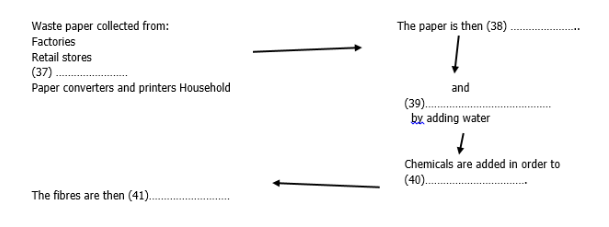
Answer Key
Unlock Answers
Section 1
| 1 | False |
| 2 | True |
| 3 | True |
| 4 | Not Given |
| 5 | False |
| 6 | D (in either order) |
| 7 | I |
| 8 | G (in either order) |
| 9 | J |
| 10 | B (in either order) |
| 11 | C |
| 12 | E |
| 13 | K |
Section 2
| 14 | i |
| 15 | iii |
| 16 | v |
| 17 | x |
| 18 | viii |
| 19 | vii |
| 20 | residential colleges |
| 21 | gas and electricity |
| 22 | size, condition, location |
| 23 | a residential college |
| 24 | damage property |
| 25 | receipt |
| 26 | understand it |
Section 3
| 30 | sustainable/ replaceable |
| 31 | Biodegradable |
| 32 | pulp/ virgin fibre |
| 33 | Government |
| 34 | Advances |
| 35 | Quality |
| 36 | Contaminants |
| 37 | Offices |
| 38 | Sorted |
| 39 | (re)pulped |
| 40 | Remove ink/ make white |
| 41 | refined |
Start Preparing for IELTS: Get Your 10-Day Study Plan Today!
General Reading Practice Tests
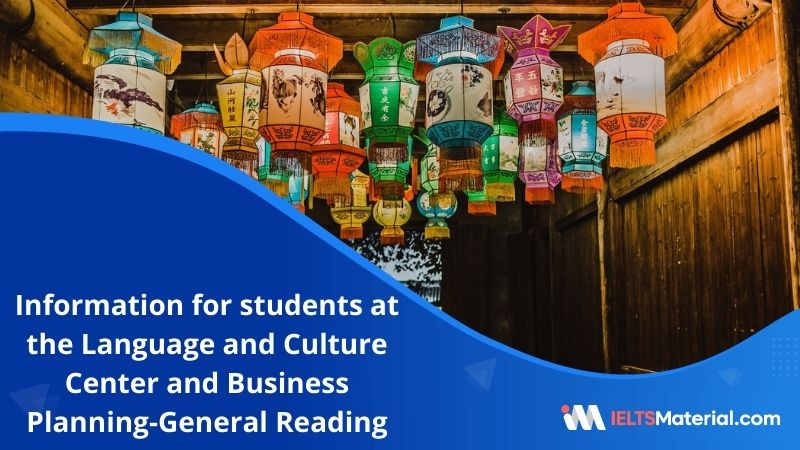
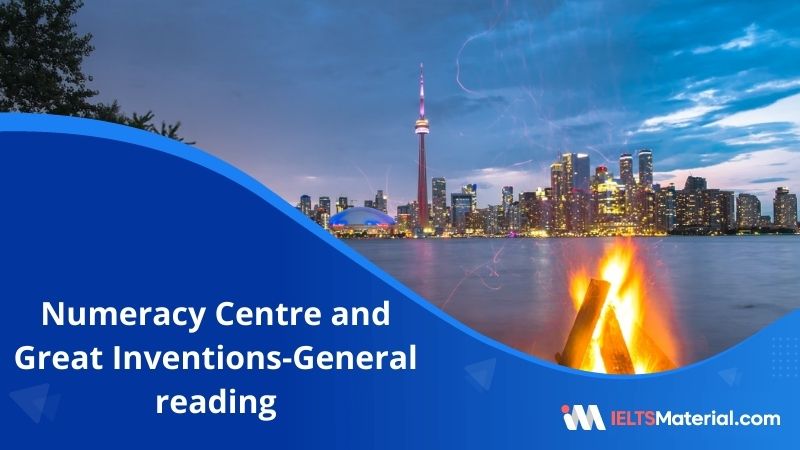
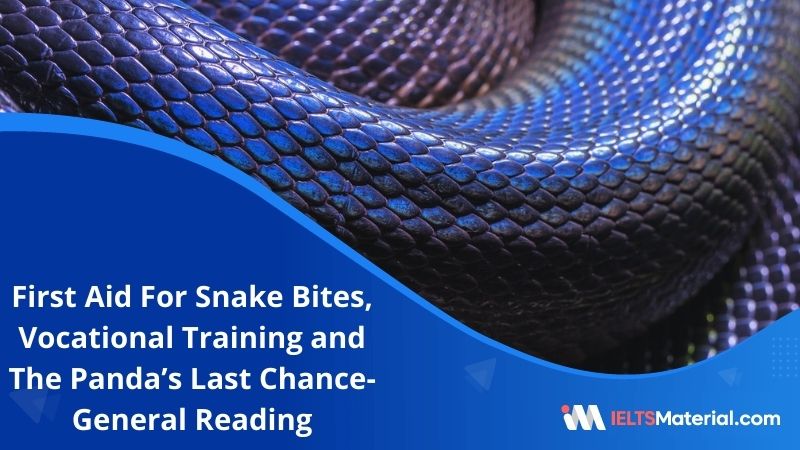
Recent Articles

Kasturika Samanta

Janice Thompson

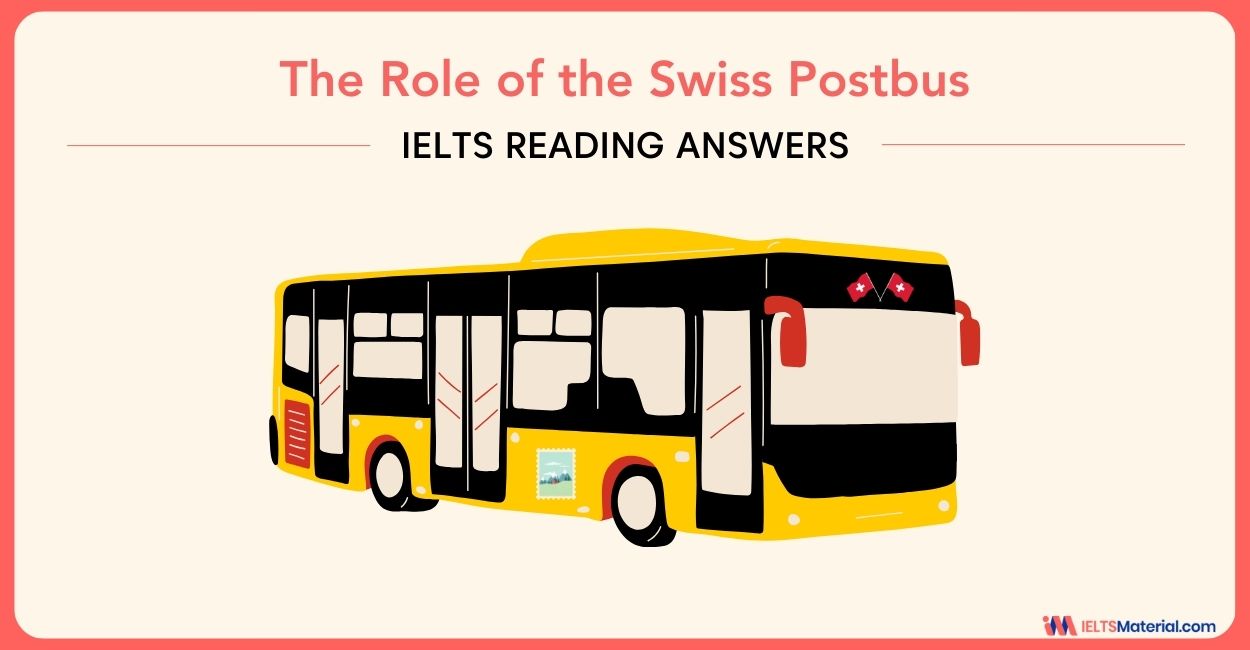
Kasturika Samanta
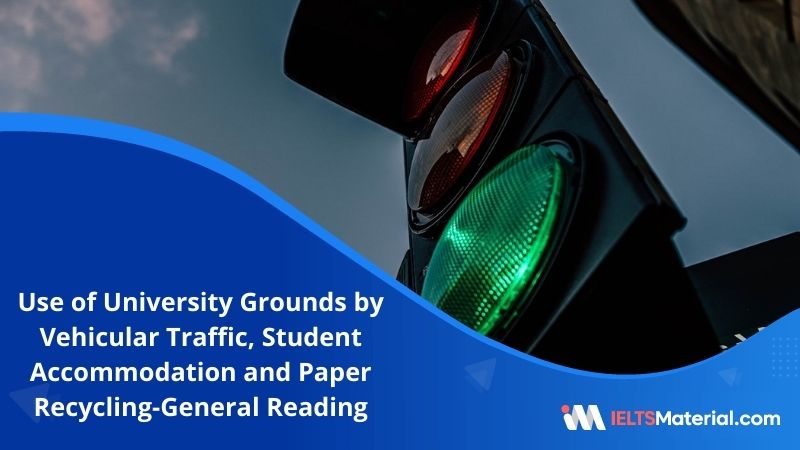



Post your Comments